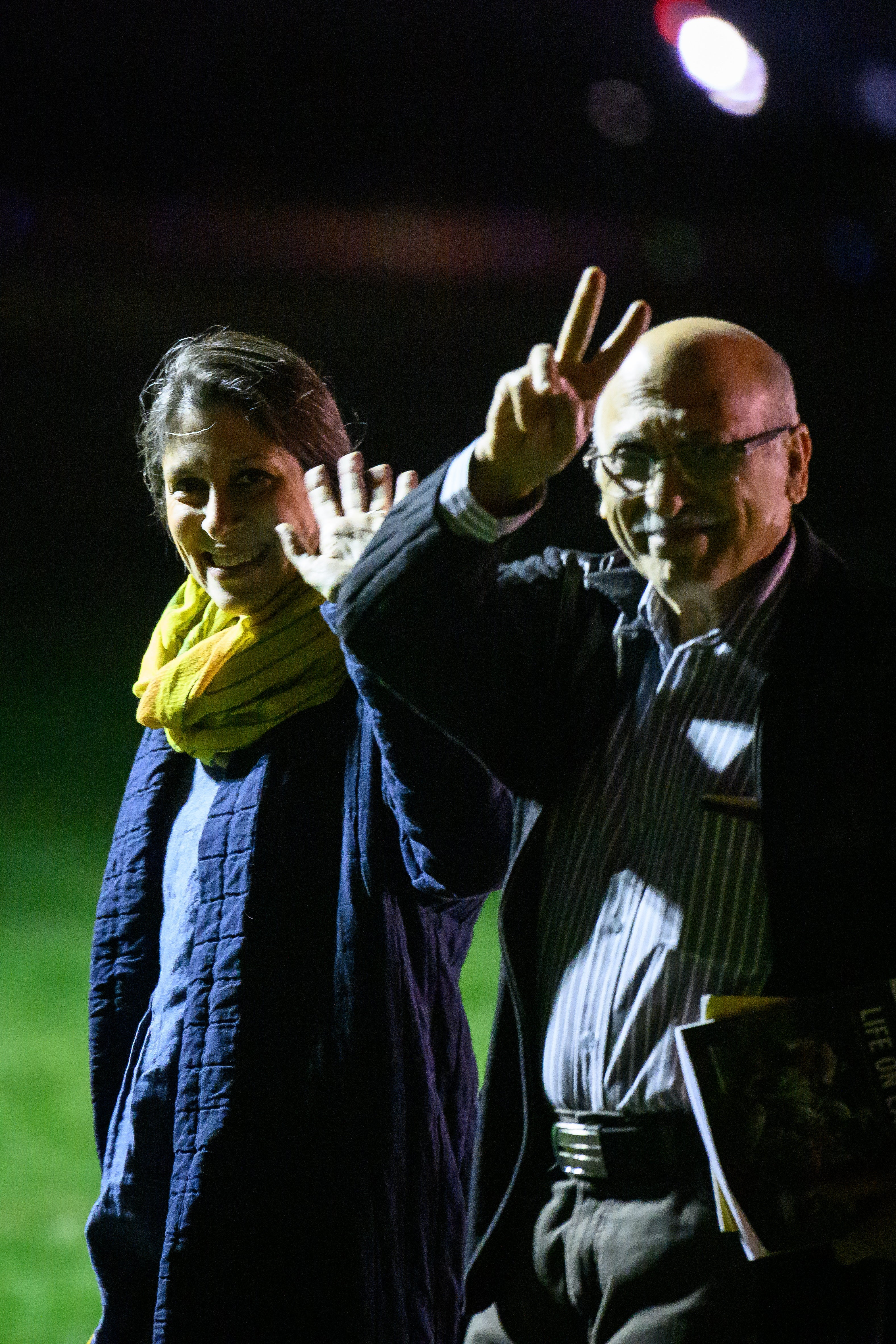Hostages like Nazanin Zaghari-Ratcliffe ‘face long journey to normality’
Lara Symons, 53, chief executive of Hostage International, spoke to the PA news agency about some of the struggles ex-hostages can expect to face.

Your support helps us to tell the story
From reproductive rights to climate change to Big Tech, The Independent is on the ground when the story is developing. Whether it's investigating the financials of Elon Musk's pro-Trump PAC or producing our latest documentary, 'The A Word', which shines a light on the American women fighting for reproductive rights, we know how important it is to parse out the facts from the messaging.
At such a critical moment in US history, we need reporters on the ground. Your donation allows us to keep sending journalists to speak to both sides of the story.
The Independent is trusted by Americans across the entire political spectrum. And unlike many other quality news outlets, we choose not to lock Americans out of our reporting and analysis with paywalls. We believe quality journalism should be available to everyone, paid for by those who can afford it.
Your support makes all the difference.Hostages face a “long journey” back to normality after being released, a charity chief executive said as Nazanin Zaghari-Ratcliffe returned to the UK.
Lara Symons, 53, chief executive of charity Hostage International, spoke to the PA news agency about some of the struggles the British-Iranian mother-of-one may face after six years in detention in Iran.
The charity worker was reunited with her husband Richard Ratcliffe and their seven-year-old daughter Gabriella on Thursday, having been released along with fellow dual-national Anoosheh Ashoori after Britain agreed to settle a £400 million debt from the 1970s.
Ms Symons said Hostage International has helped many “trauma hostages”, adding: “From that experience, we’ve learnt that this is a new journey. This is a long journey.
“I think when people think about normal life, they think about the life that they led before and, sadly, to some extent, that is not possible.
“You can’t go back to that because both you as a hostage and your family have been changed quite a lot by the experience.”
Ms Symons said every hostage has different obstacles to overcome after leaving captivity, but in regards to high-profile cases, media attention will be one of the biggest struggles.
“Obviously, people have been following some of these hostage cases for years and they feel, you know, part of it and it’s something they want to hear about,” she said.
“But the families and the returning hostages do need time and space just to be alone and try to take stock of what’s happened and learn to be with each other again.”
It is also harder for high-profile cases to dissociate themselves from “the badge of being a former hostage”, but some choose to embrace it to raise awareness on the topic, she added.
Ms Symons said being a hostage can lead to people “changing their priorities in life” as they find joy in the small things, which include having a meal with their families.
In the case of Mrs Zaghari-Ratcliffe, one of her requests was for her husband to make her a cup of tea, while Mr Ashoori wanted a beer.
One of the founders of Hostage International, Terry Waite, was kidnapped by Hezbollah in Lebanon, while he was serving as the then-Archbishop of Canterbury’s envoy in 1987.
“He is a man of immense compassion and he’s brought that to the organisation… just wanting to help people who are going through difficulties and using his own experience of having been through it himself – that is what Hostage International is about, ” Ms Symons said.
Speaking on Tonight with Andrew Marr on LBC, Mr Waite said he had spoken to Mrs Zaghari-Ratcliffe about dealing with life after captivity.
He said: “I said, ‘Nazanin, when you come out, take it as if you are coming up from the seabed. If you come up too quickly you will get nitrogen in the blood and you will become seriously ill.
“‘If you come up gently, one step at a time, then you will be fine. Make your statement to the press, get that off your chest, then go and meet with the family and then go away from all the enormous pressure that will be on her at this time.'”